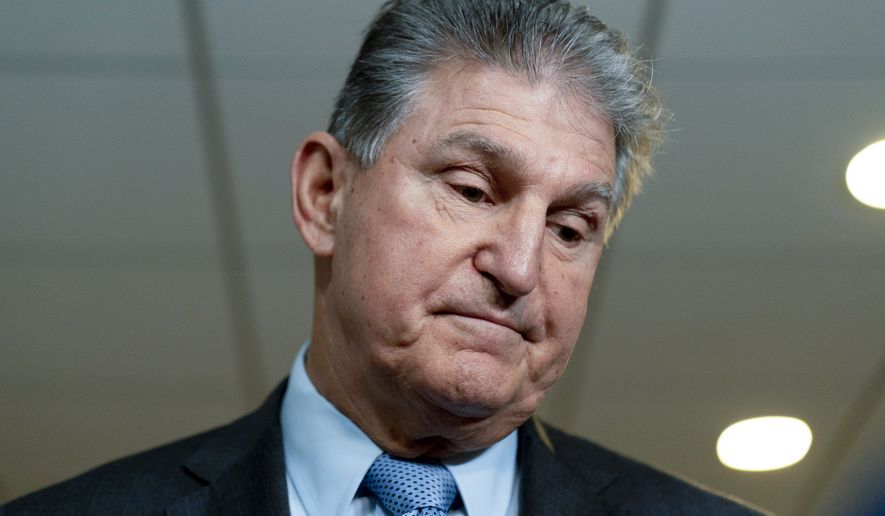Sen. Joe Manchin III signaled his opposition to a “market-to-market” tax on billionaires to help pay for President Biden’s expansion of the federal safety net, instead floating a 15% “patriotic” wealth tax.
Mr. Manchin, a West Virginia Democrat, argued that taxing billionaires annually on any increase in the value of their assets, like stocks and real estate, was “convoluted.”
“I don’t like it. I don’t like the connotation that we’re targeting different people,” he said. “There are people that basically contribute to society and create a lot of jobs, invest a lot of money and give a lot to philanthropic pursuits.”
Instead, Mr. Manchin floated the idea of a 15% “patriotic tax” on the wealthy, arguing that everyone had a “duty” to pay something.
“If you’re to the point where you’re able to use all of the tax forms … to your advantage and you end up with a zero tax liability,” said Mr.Manchin. “There should be a 15% patriotic tax. That’s me speaking, I’m not speaking for anybody else.”
Mr. Manchin added that a flat 15% tax on the wealthy would ensure everyone was paying their “fair share” without being overly burdensome.
“Rather than trying to penalize them, we [should] be pleased this country is able to produce that wealth,” he said. “But with that, there’s a patriotic duty that you should be paying something to this great country to give you the protection and the support and the opportunities. That’s called a patriot.”
Mr. Manchin’s opposition to a billionaire’s tax likely prevents the policy from being included in the $2 trillion package Democrats are struggling to assemble.
That reality stems from the fact that Mr. Biden plans to move the spending bill using a process known as budget reconciliation. The antiquated legislative procedure allows certain spending and tax measures to avert the Senate’s 60-vote filibuster threshold and pass by a simple majority of 51-votes.
Since the Senate is split 50-50 between the two parties, Mr. Manchin’s support is key. His opposition also endangers progress on the overall negotiations.
Democrats were hoping that a tax on billionaires would raise enough revenue to fund all of the new programs being considered within the reconciliation package. Without a proper funding mechanism, lawmakers say they cannot move forward with finalizing the package and all that will be included.
“Every sensible revenue option seems to be destroyed,” said Sen. Benard Sanders, a self-described socialist from Vermont. “It seems to me that almost every sensible progressive revenue option that the President wants, that the American people want, seems to be sabotaged.”
SEE ALSO: ‘We’ve all agreed’: Manchin backs 15% minimum tax on corporate profits
• Haris Alic can be reached at halic@washingtontimes.com.




Please read our comment policy before commenting.